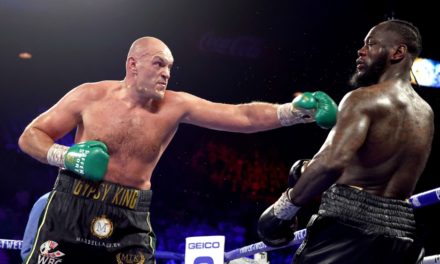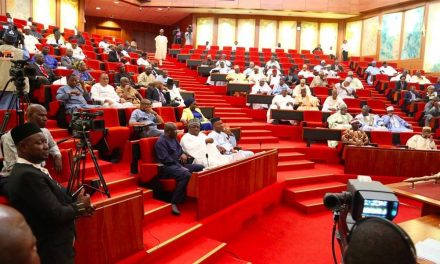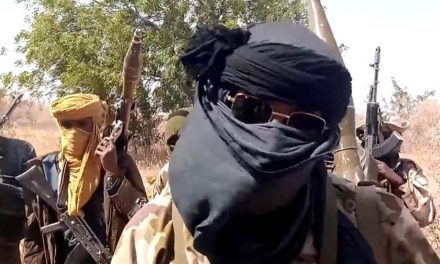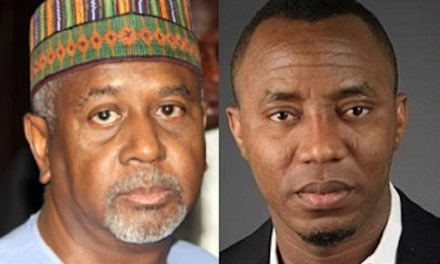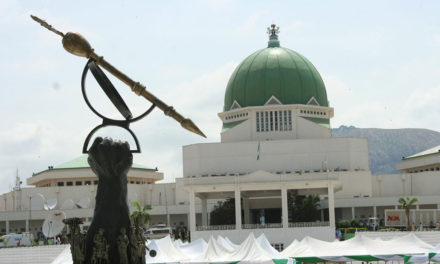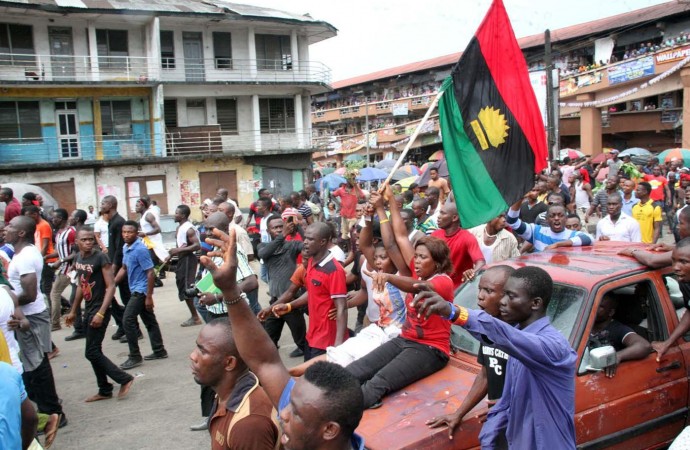
For a long time, there have been widespread feelings among the Igbos of Nigeria of not being fairly treated in Nigeria.
This existed before the emergence of MASSOB (Movement for the Actualization of the Sovereign State of Biafra). MASSOB started agitating for the creation of an independent state out of Nigeria to be called Biafra. This was recently brought to the front burner by a splinter group called IPOB (Indigenous People of Biafra). The position of IPOB is: We are marginalized, therefore we are breaking away whether you like it or not. Now, breakaway or secession is not a joking matter. I do not think that any reasonable group of people will decide to go for secession at all costs because of a few isolated cases of marginalization from time to time. My understanding of the IPOB position therefore is that the Igbos have been consistently, massively marginalized by the rest of the country for a long time, say, 40 or more years and that everything humanly possible within the law has been done to check it but to no avail, so the Igbos no longer have confidence that this will stop without a fight.
Since people from different parts of the country, aside from the South East, have led the country since, say 1970, the IPOB position must mean that all these people: Yakubu Gowon, Murtala Mohammed, Olusegun Obasanjo, Shehu Shagari, Muhammadu Buhari, Ibrahim Babangida, Ernest Shonekan, Sani Abacha, Abdulsalami Abubakar, Umaru Musa Yar’adua & Goodluck Jonathan have been completely agreeable and consciously playing out a script written by whom I don’t know. Could this ever be possible? I don’t think so. Let’s look at just one of the individuals, Goodluck Jonathan. This man wasn’t even in the university when Yakubu Gowon left office in 1975. To suppose that this man would grow up, acquire his degrees, begin his working life, become deputy governor, governor, Vice President, President, and continue to play out this same script that had been on for decades without question simply beats the mind.
Hear their language: they are marginalizing us, we are not free, they are stopping us from moving ahead. These sound as though the Igbos are standing on one side and the rest of the country on the other. I remember a national survey on marginalization was conducted several years ago and the findings showed that every section of the country felt it was being marginalized. The South-East is therefore not peculiar in this regard, the only difference is that it has complained loudest. The feeling of marginalization often arises from inappropriate evaluation of the cause of some pain somewhere.
The IPOB claims seem to suggest that all the pain of the South Easterner is externally induced and that he would have flown to the moon if not for the obstacles laid on his path by the tireless enemies of the South Easterner. One would expect that the South Easterners would demonstrate this in those areas they have full control over. The questions one would then ask are: Have the South Eastern governors been the best in the country? Have their state houses of Assembly been the best? Have their hospitals, schools, roads, etc. been the best? Have their state universities ranked highest in the annual universities ranking? Have their members in the National Assembly been the best representatives of their people? The answer to all these is a resounding NO. What then is holding South Easterners from attaining those lofty heights in the areas enumerated above?
Some point to quota system as an evil policy but they forget the origin of the policy, the need for the policy and that quota system is practised in many parts of the world, for the same reasons and without the kind of colorations we give it here. Families are known to have evolved quota system of some sort. I believe the spirit of the quota system is a good one, but the policy must be implemented with every sense of responsibility.
The Nigerian Civil war ended 47 years ago. It no doubt set the Igbos back. If after 47 years the Igbos don’t find themselves in strategic positions to be able to neutralize attempts at marginalization, can one say it is because they lack the energy, the courage, the perseverance, the hardworking spirit, the determination, etc? Or the desire and foresight to appreciate its value? 10,15, 20 years after the war, yes, it is understandable but 47 good years? Not understandable. It must be self-inflicted! Is it not the same Igbos that have practically conquered every inch of the country and even beyond, no matter the odds in the areas they are interested in? It is often said that over 75% of the hotels in Abuja are owned by Igbos. Someone claimed in a recent detailed write up on same subject that up to 80% of privately owned buildings in Abuja are owned by Igbos.
Suppose this is correct, who will ever believe that this feat has been accomplished by less than 20% of the Nigerian population who started life afresh with £20(for some) in 1970? Who would want to convince me that these same people could not have achieved similar feat in politics and governance if their efforts were so directed? Do the Igbos think they will get political influence by wishful thinking? Or by complaining? Instead of engaging in strategic political thinking and execution of strategic political plans? Do the Igbos come together to fight for themselves at the Federal level as others do? No! Most times when meetings on national issues are scheduled, very few South Easterners show up due to lack of interest which I dare say arises from lack of appreciation of the fact that decisions reached in those meetings will affect the lives of all Nigerians in time to come. At that time, complaints of interests not being adequately taken care of will fill the air without anyone making mention of the opportunities for contributions willfully missed by the complainants. A typical example is the case of a meeting on water supply scheduled to take place in Abuja sometime in 1996/97, during the period of the execution of the World Bank-assisted National Water Rehabilitation Project. Similar invitations were sent out to all states of the Federation.
My enquiries after the meeting showed that no South Eastern governor attended the meeting whereas all the Northern governors attended in person, mostly with their teams of water supply experts. This kind of scenario has played itself out till this day. This is certainly not the way to influence policies. This is not the way to check attempts at marginalization. The Igbos seem to adopt two different policies for two sectors of life. For business, don’t wait for it to come, go get it, re-design the landscape to what you want. For politics, wait for it to come, and if it doesn’t come, complain and blame others. Leave the landscape for others to re-design and complain later. You certainly can’t get the comparable results for both sectors. This attitude must change.
Looked at from any angle, it is difficult to find sufficient ground for the claim of massive prolonged and coordinated marginalization of the Igbos by the rest of the country to warrant a resort to secession as a solution. For me, an agitation for secession by the North Easterners on grounds of neglect or abandonment by the rest of the country, especially before the coming of the Buhari administration, would be better substantiated. Reason? They were effectively abandoned and condemned to the mercies of the merciless Boko Haram regime for an unexplainably long period of time. Even now, despite the commendable diminishing of the bandits’ capacity to wage war and misrule the people, North Easterners are still not getting enough in terms of security, rehabilitation and poverty alleviation programmes. Another example of another section of the country that has been mistreated for a prolonged period is the oil devastated areas of the Niger Delta. Some may argue that the Niger Deltans are not helping matters, but in just the same way, the South Easterners are not helping matters. I am sure there are other groups, maybe smaller, that have received far less attention than they deserve. Even if the South East is neglected, it is certainly not the most neglected. Can you for a moment imagine what the situation would have been if the South East were the oil-devastated area?
One reason why mega business corporations are not common place in the SE, set up by the South Easterners is the high degree of individualism the Igbo man is known for. Trust is a scarce commodity even between identical twins. A good degree of trust is essential for the power of synergy to be fully harnessed. Individual effort in business is supreme among South Easterners. This is also one reason why system function in the South East has taken considerable battering. If any section of the country may lay claim to being held back by the union called Nigeria, it is the South West, in terms of system function. In my opinion, systems in the South West are a bit more self-flushing than the rest of the country.
IPOB is a pretty recent formation. I checked their website early in the year to see for myself the facts and figures of their claims and I found practically nothing. I was shocked to find the website so scanty. One would expect that the Think Tank(if it exists) of IPOB would have come out with a comprehensive, well articulated argument, lavish with facts and figures in support of their claim. Instead, it has continued to indulge in making vague statements whose foundation cannot be found. It is now clear to most that IPOB has neither a comprehensive nor clear plan of action. This should not surprise anyone since it lacks a well thought out policy. It has embarked on a much more propagandist approach, insulting everyone within reach, churning out jumbles of incoherent, sometimes contradicting sermons savoured mostly by the down trodden. Its achievements? Winning over a lot of the lower-class Igbos, feeding into the age-old sentiments of most of the Igbo population, frightening the rest of the country and setting the stage for needless conflict. Is this how to actualize Biafra?
According to Nnamdi Kanu, the leader of IPOB, the offence committed against the Igbos by the rest of the Country is marginalization. His solution? Secession! Simple enough. Should marginalization be detected in the new Biafra I hope Nnamdi Kanu would tell the marginalized section to secede?
Over time many Igbos, including prominent ones tacitly supported the IPOB movement obviously for sentimental reasons. As the agitation grew louder, they were forced to change their positions when, having now thought it through, it dawned on them that the reality of the proposal may be much more horrifying than they could ever have imagined especially as the final destination could never be clearly discerned, and therefore felt it may be safer to continue and hope for a better Nigeria than the big risk of trying to create a new nation. I am sure that if the name ‘BIAFRA’ had not been used in all these agitations the attraction would have been far less.
The solution to marginalization cannot always be secession. You simply fight it. If Nigeria were more beautiful than Dubai and stronger than the US, with the claimed imbalance remaining the same, would the IPOB agitation have been the same?
Nnamdi Kanu’s proposed map of Biafra is a bit baffling, difficult to understand how he arrived at it, including some non-Igbo portions of Benue State and Rivers State. Without discussing with any of the other stake holders, he simply sits down and draws up a map of his fancy. This is one of the many laughable postulations of the IPOB leader. I wonder what makes anyone think any non-Igbo would want to be included in the new Biafra. Those included by Kanu have already made it clear that they will never be part of Biafra. It is not altogether inconceivable that some Igbos may prefer to remain in Nigeria after Biafra gains independence.
It gives me goose flesh to think of how the new Biafra will play its politics. The existing deep divisions and age-old marginalizations will certainly become deeper and sharper.
Everyone knows that deep-rooted marginalization has existed in Igboland since colonial times. We haven’t forgotten the shameful saga of Anambra North and South dichotomy which preceded the creation of Enugu State from the old Anambra State.
Does the South East have what it takes to build a virile nation: Selflessness? This may be in short supply.
Of course, a well founded and administered Biafra would no doubt be a formidable nation in all aspects but who would guarantee the cohesion administratively? Just as Nigeria has enormous potential for becoming a great nation but has remained a crawling baby due to poor handling.
The problems of breakup and rebuilding a nation are enormous. The Igbos have as much rights in Nigeria as everyone else. They should fight for their rights at every turn without hesitation. They should contribute their very best in any society they find themselves in. This is the easiest way to go. The Igbo should learn to hold their leaders at all levels accountable.
In the years past arguably, the South East remained the most abused by its Governors. Fortunately, things began to change in the recent past when some governors began to truly work for the people not because the people demanded it.
Since the agitation for Biafra by IPOB became quite loud, the consciousness of the Igbo leaders appears to be further awakened. The people shouldn’t let up. If the well-known energy and determination of the Igbo man are channeled towards ensuring good governance in the South East, it won’t be long before people start begging to invest in the South East as against now where many investors avoid the South east.
If the IPOB leader had channeled all his efforts towards ensuring good governance in Nigeria all these years instead, the dividends would have been much more enviable, and he would have come out a national hero and international star. He should remember that Nelson Mandela also had a country and hailed from a region in that country but did not pursue regional objectives. He pursued national objectives, for which he was willing to sacrifice all that he had in a much more dangerous South Africa than we have in Nigeria today. The end result is what we all know too well, culminating in the most celebrated burial ceremony the world has ever known in my judgement. It is not too late Nnamdi Kanu, to switch gears. You have the chance of ending up as great as Nelson Mandela, if not greater since you have proved that you have the energy and the courage. All you need do is change theme to a more noble one, and methodology to a more attractive one. Your current position is likely to earn you a self-knock out before commencement of the bout. I already hear you are on the run.



